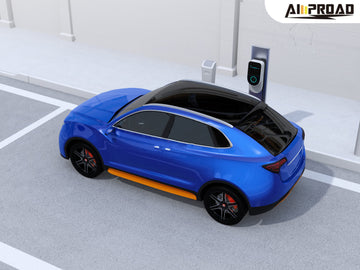
The electric vehicle (EV) revolution is gaining unprecedented momentum, marking a transformative shift in the automotive industry. As EV adoption accelerates, the development of a robust and ubiquitous EV charging infrastructure has become paramount. Central to this evolution are the key players in the manufacturing sector, whose charging stations are essential to the seamless operation of these vehicles. This exploration delves into the prominent companies that manufacture EV charging stations, highlighting their strengths and the dynamic landscape of this critical industry.
Tesla, a pioneer in the EV market, epitomizes a vertically integrated approach that sets it apart. Not only does Tesla design and manufacture electric cars, but it also operates the Supercharger network, the largest fast-charging network globally. With over 50,000 Superchargers strategically placed along major routes, Tesla provides unparalleled convenience for long-distance travel, offering high-speed charging that significantly reduces wait times. However, the exclusivity of the Supercharger network to Tesla vehicles limits its accessibility to other EV brands, posing a challenge in a diversifying market.
Beyond Tesla's proprietary network, a multitude of manufacturers contribute to the broader EV charging landscape, each bringing unique strengths to the table. ChargePoint stands out as a leading provider of charging solutions for businesses and public spaces, boasting a vast network of over 174,000 charging EVCS charging station worldwide. Their comprehensive offerings include both hardware and software solutions, catering to a wide range of needs and enhancing user experience through smart management systems.
ABB, a Swiss-Swedish engineering giant, leverages its expertise in power and automation to manufacture reliable and efficient EV charging stations. Their offerings cater to both residential and commercial applications, reflecting a commitment to quality and innovation. Similarly, Siemens, another industrial powerhouse, actively engages in the EV charging space with a broad range of solutions, including both AC and DC chargers designed for various applications. Their extensive experience in industrial engineering and automation positions them as a formidable player in the market.
Enel X, an Italian multinational energy company, also plays a significant role in the development of EVSE charging infrastructure. Operating a vast network of charging stations and manufacturing innovative solutions, Enel X promotes widespread EV adoption. Their focus on sustainability and smart energy solutions aligns with the growing emphasis on environmental responsibility in the industry.
Compleo Charging Solutions emerges as a key manufacturer of both AC and DC charging stations, providing robust solutions for diverse applications. They also offer sophisticated software for managing and monetizing charging networks, enhancing operational efficiency for businesses. Blink Charging, another prominent player, focuses on deploying charging stations in workplaces and public locations, aiming to make EV charging readily accessible for everyday use. Their strategic placement of chargers in high-traffic areas supports the growing demand for convenient charging options.
Among the rising stars in the industry is AMPROAD®, known for its reliable Level 2 EV charger. Level 2 charger, or AC charger, are typically installed in homes, workplaces, and public parking spaces, offering slower charging speeds ideal for overnight or workday charging. AMPROAD®’s commitment to quality and durability makes it a trusted choice for consumers and businesses alike. Their popular iFlow P9 model features adjustable amperage, allowing users to optimize charging based on their circuit breaker rating and desired speed, exemplifying the innovation driving the market forward.
The EV charging station market is dynamic, shaped by various factors that drive its evolution. Government regulations and incentives play a crucial role in promoting EV adoption, with many governments investing in charging infrastructure and offering incentives to spur growth. These supportive policies create a fertile ground for manufacturers, encouraging innovation and expansion.
Standardization is another critical aspect, ensuring compatibility between different charging stations and vehicles. Efforts are underway to create a unified system that caters to all EV brands, enhancing user convenience and fostering a more cohesive market. Technological advancements in battery technology and charging infrastructure are also pivotal, leading to faster charging times and longer ranges for EVs. Manufacturers continually innovate to develop more efficient and user-friendly charging solutions, keeping pace with the rapid advancements in the EV sector.
Cost considerations significantly impact the market's growth, as the installation and maintenance of charging stations require substantial investment. Manufacturers focus on cost-effective solutions to make EV charging more accessible, balancing quality and affordability. These efforts are crucial in expanding the infrastructure to meet the growing demand.
Looking ahead, the future of EV charging stations appears bright. The expansion of charging networks is inevitable as the EV market continues to grow, ensuring convenient charging options for EV owners. Integration with smart grids is likely, optimizing energy use and reducing costs through sophisticated energy management systems. This integration will enhance the efficiency of charging networks, supporting the broader transition to renewable energy sources.
Bidirectional charging represents another exciting development on the horizon. This technology enables EVs to feed power back into the grid during peak demand periods, offering a novel solution to energy management challenges. Such advancements could transform EVs into valuable assets in the energy ecosystem, providing additional benefits to owners and contributing to grid stability.
Wireless charging, though still in its nascent stages, holds immense potential for the future of EV charging. This technology promises a seamless and convenient charging experience, eliminating the need for physical connections and enhancing user convenience. As research and development in this area progress, wireless charging could become a standard feature in EV infrastructure, further driving the adoption of electric vehicles.
In closing, the EV charging station market is a vibrant and rapidly evolving industry, driven by the combined efforts of established giants and innovative newcomers. Companies like Tesla, ChargePoint, ABB, Siemens, Enel X, Compleo Charging Solutions, Blink Charging, and AMPROAD® are at the forefront of this transformation, each contributing unique strengths to the development of a comprehensive and efficient charging infrastructure. As government policies, technological advancements, and market dynamics continue to shape the industry, the future of EV charging stations promises to be both exciting and transformative, supporting the global shift towards sustainable transportation.



